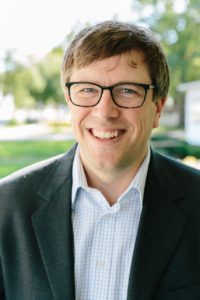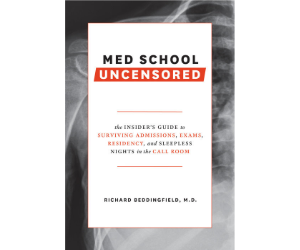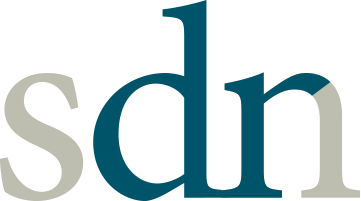Last Updated on June 26, 2022 by Laura Turner
1. Tell us about yourself.
I’m a 38-year-old anesthesiologist practicing at a busy community hospital in downtown Madison, Wisconsin. I am married and have two rambunctious daughters, ages 6 and 3. I grew up in the Southeastern United States, mostly between Florida and Georgia. I headed north for college and earned my Bachelor of Business Administration degree from the University of Michigan in 2001.
After working in information technology for three years, I went back to school to complete my prerequisites for medical school. I attended medical school at the University of Minnesota, graduating with a Doctor of Medicine degree in 2010. I then spent four years in anesthesiology residency at the Medical College of Wisconsin in Milwaukee. I headed back to the University of Minnesota for one year to complete a fellowship in cardiothoracic anesthesiology. Finally, I moved to Madison, Wisconsin, starting my first real job as a practicing anesthesiologist in 2015.
Though my focus is on anesthesia for cardiac surgery, I practice the full gamut of anesthesiology, including outpatient, obstetric, neurologic, and orthopedic surgery. In addition to writing and publishing Med School Uncensored over the last two years, I spend most of my free time with my family, travelling, playing piano, and occasionally losing money at poker.
 2. What did you want to be when you were growing up?
2. What did you want to be when you were growing up?
My career aspirations were all over the place. During my freshman year of college I considered majoring in piano performance and physics, ultimately deciding to study computer information systems at the University of Michigan Business School. I enrolled in a broad range of courses in accounting, finance, and economics, while also learning computer programming, database design, and other skills that have proven useful since graduation.
3. What drew you toward medicine?
Unlike the prototypical premed from birth, I first got the “medicine bug” during my senior year of college, just months from graduation. On a whim, I had signed up for a “Mini-Med School” program at the University of Michigan, designed primarily for the lay public—though there were a few premeds in the audience, as well. For about three hours each week, members of the Michigan Medical School faculty presented lectures on a wide array of topics, including anatomy and physiology, as well as major organ systems such as cardiology, pulmonology, and endocrinology. After just a couple weeks, I was utterly fascinated and knew I wanted to know more!
Once that initial spark was ignited, I kept coming back to the question of whether I really wanted to change my career trajectory so soon after college—starting down such a long and challenging educational path. In retrospect, I should have more seriously considered other professions in the healthcare field—but at the time, I was most familiar with the idea of becoming a physician. Having done well in school thus far in my life, I felt this was something within my reach—and the rest is history!
4. What’s your favorite premed or med school memory?
There are countless clinical encounters and moments of accomplishment that I still remember fondly. But my favorite memory comes instead from a trip to Jazz Fest in New Orleans that I took with several of my closest friends from med school. Just a few months from graduation, it was a week of music, good times, and debauchery of which I will omit details. Today it reminds me of the close, lifelong friendships that one inevitably develops during the intense and challenging years of medical school. Even though my class of 250 physicians is now spread throughout the country, the friendships and professional relationships formed during those years will always be among the strongest.
5. Tell us about “Med School Uncensored” in a nutshell.
Med School Uncensored is everything I wish an older, wiser physician fresh out of medical training had told me when I was a premed or early med student. Bookstores and online forums abound with advice about how to get into med school, how to ace the MCAT, and how to nail the med school interview. Much of it is written by educators and career counselors who are well intended but have never actually been through the process of becoming a physician—or near-retirement academic doctors who went to medical school before the discovery of penicillin.
I wrote Med School Uncensored within the first months after finishing my fellowship—before the sudden increase in free time and income made me too comfortable to forget the challenges of medical training. The book starts with simple advice for premeds just starting to consider medicine as a career. It continues in chronological order through the milestones everyone passes on the way to becoming a doctor: starting med school, gross anatomy, pre-clinical coursework, board exams, clinical rotations, choosing a specialty, applying to residency…all the way through completion of residency, fellowship, and ultimately finding and starting one’s first job as a real physician. I don’t leave anything out, and I tell it like it is: the good, the bad, and the ugly.
6. How did you come up with the idea for Med School Uncensored?
The Introduction of my book tells the true story of how I first came up with the idea for Med School Uncensored. In short, during my senior year of med school, I had volunteered to meet with a premed student to answer questions about my experiences in medical school. I met a young undergrad at a coffee shop and was barraged with questions about how to get into medical school: what GPA “guarantees” admission, which essay topics are the best, ideal volunteer experiences. When I asked the eager premed why he wanted to go to med school, what he expected it to be like once he got in, and why he wanted to be a doctor, he didn’t have much to say beyond the cliché, “I want to help people, and I like science.”
That response is burned into the retinas of every admissions officer at every medical school in the country—and is unlikely to help anyone stand out and gain acceptance. Furthermore, premeds are so often focused on the singular goal of getting in that they fail to consider what becoming a doctor really means: what a career in medicine entails, whether it is truly a good fit for them, and what alternatives may or may not be better. I wanted to put into words (288 pages to be precise) the meat and potatoes of what medical training is really like—and all the ups, downs, and twists of becoming a physician and practicing medicine in the real world.
7. What was your ultimate goal in writing Med School Uncensored?
For premeds who are considering whether medicine is the right career for them—and for students who have just started down the long path to becoming a physician, my goal is that Med School Uncensored provides an unvarnished, truthful account of what they can expect. If I can also get a few smiles and laughs along the way, then all the better!
8. Who should read this book?
Med School Uncensored will be of interest to anyone curious about how we select and train physicians in the United States. But first and foremost, I wrote the book for premeds, medical students and residents, and friends and family of medical trainees who are curious about what their loved ones are going through.
9. What was your favorite part of writing the book?
Reliving some of the memories from my decade of medical training was a real joy—even the ones that involved sleep deprivation, public humiliation, and awkward encounters at the hospital. I also enjoyed learning about some of the changes in medical education since I started med school in 2006. Finally, I had many great conversations and reunions with former classmates and residents while seeking advice and contributions for Med School Uncensored.
10. Has anything about writing Med School Uncensored changed the way you approach your medical practice?
There are so many unexpected costs—money, time, and bureaucratic headaches—associated with becoming and being a physician that it’s easy for even the most idealistic med student to grow cynical with time. Writing Med School Uncensored—and in recent weeks talking online and in person with young premeds—reminded me what fascinated me so much a decade ago about medicine and why I initially chose to switch careers and become a physician.
11. What surprised you about your work on Med School Uncensored?
During the process of writing Med School Uncensored, I shared the book with several dozen former classmates and residents, who are practicing in all sorts of specialties throughout the country. Despite our varying backgrounds and paths, I was surprised by how everyone has told me the book rekindled so many memories and reminded them so much of their own time in medical training.
12. From your perspective, what is the biggest problem in healthcare today?
We’ve made great strides in combatting infectious disease, childhood illnesses and congenital defects, and even many types of cancer that were once considered death sentences. But so many people suffer from chronic diseases and conditions that are largely preventable with better diets, more exercise, and avoiding common vices. As a society, we have yet to find a good balance between promoting public health and preserving individual freedoms. This will likely become increasingly important and controversial if we continue to shift the role of paying for health care to the public sector.
13. What is one piece of advice from the book you wish someone had told you before medical school?
I wish someone had explained to me how specialty selection works, what factors are considered when medical students apply to residencies, and the massive importance of the single medical licensing exam called USMLE Step 1—and how best to prepare for that exam. I figured out most of these things along the way, but knowing more from the start would have been helpful.
14. What impact do you hope Med School Uncensored will have?
My hope is that Med School Uncensored helps premeds firmly decide whether or not medicine is their true calling. Unfortunately, I have encountered many doctors unhappy with their career choices—many who wish they had chosen a different career altogether. This is the minority, thankfully—but I will consider my work on this book entirely worth it if I can prevent just one case of a future doctor being unhappy with his or her decision to go to medical school. And I’ll be even happier if I can affirm the decision of other premeds that without a doubt, medicine is a great fit for them.
15. Anything else you want to share with SDN members?
Student Doctor Network is a wonderful resource that I used extensively throughout my years as a med students and resident. I still log in now and again to chat with other physicians in my specialty—and to offer advice and cautionary tales to premeds and medical trainees still finding their way. But like everything that’s free, you get what you pay for. I remember sometimes being discouraged by SDN posters bemoaning the downward spiral of medicine, bashing residency programs I was interested in, and otherwise speaking as the ultimate authority on all topics.
If you hear the same advice over and over again, it’s foolish to ignore it completely. But also take everything with a grain of salt—including Med School Uncensored. Throughout the process of writing and publishing my book, I had many other physicians read it and subject it to a reality check. But when considering something as important as your future career, always listening to as many trusted voices as possible. And with that, I wish everyone on SDN the best of luck!


